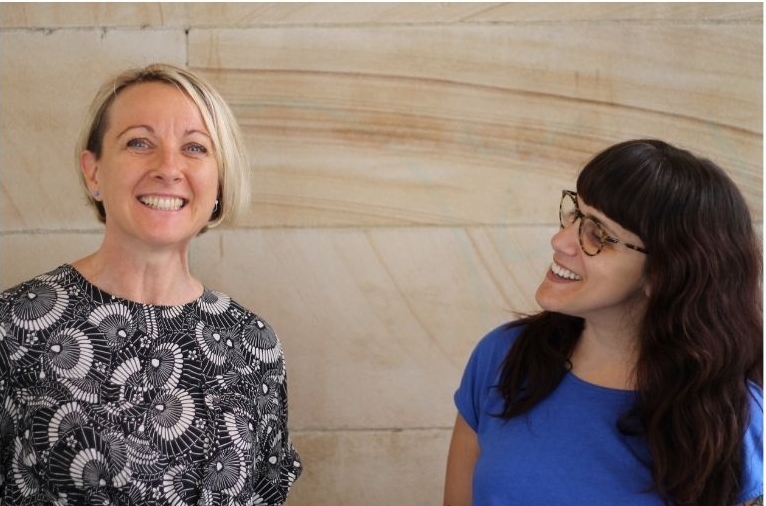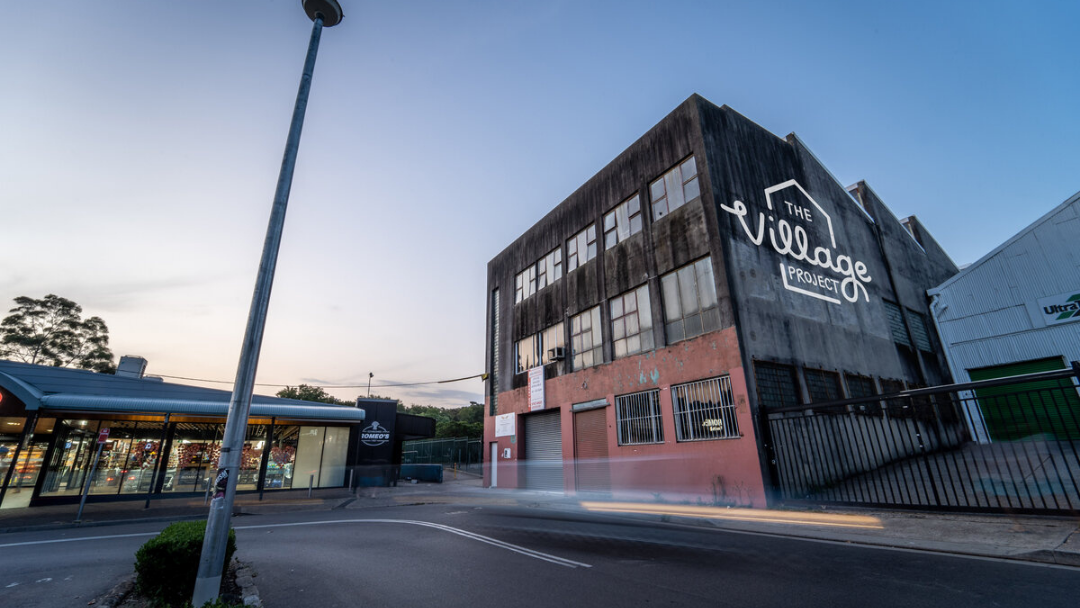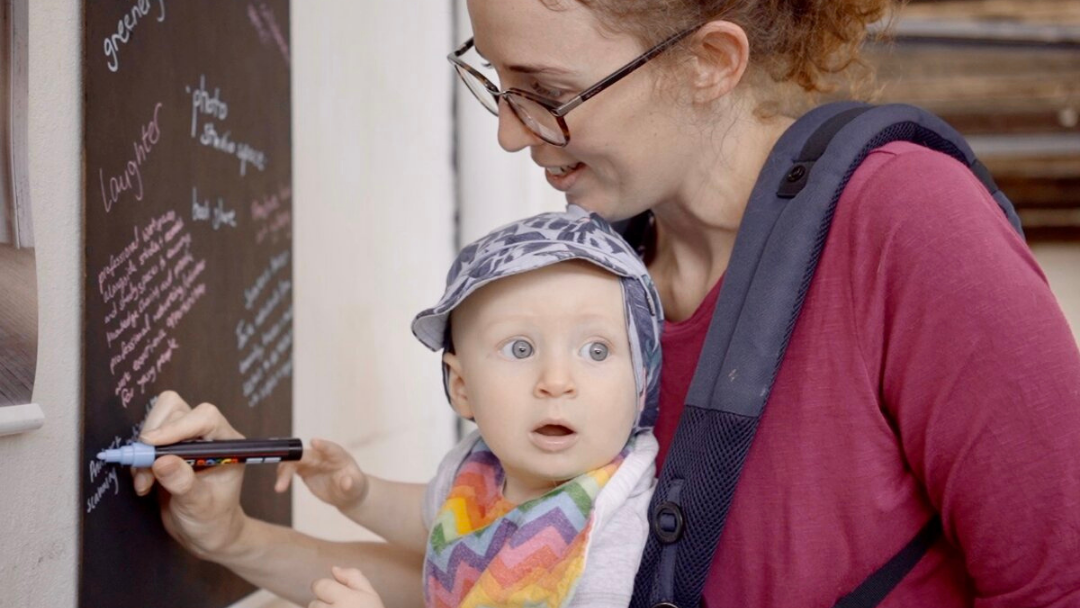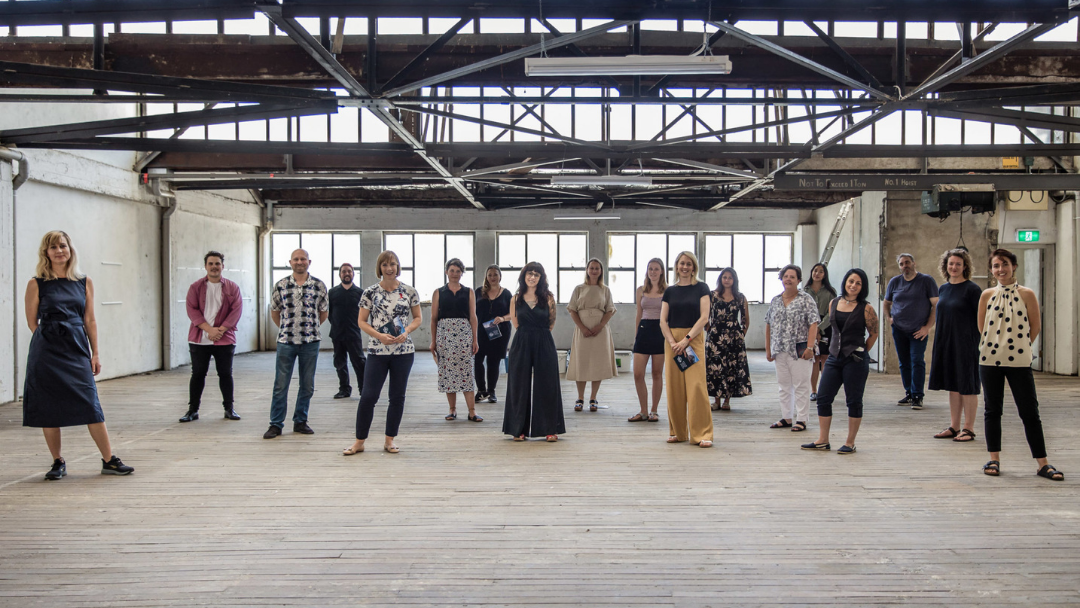A C O – O P F E D E R A T I O N F E A T U R E

From Vision To Reality
We recently caught up with new Co-op Fed members “The Village Project” (TPV) when they attended The Co-op Federation’s governance session in Sydney.
The Co-op Federation’s Secretary Sam Byrne had consulted with TVP to help establish and register the co-operative so we took the opportunity to interview two of the five founding members, Bindi Lea and Rachel Pines. They shared the story of the origins of this ambitious project and the moments of synchronicity which brought it into being.
The Village Project will be located in a three-storey warehouse. After sitting vacant for 16 years, the building is being transformed into a green building and vibrant community hub that will house retail, food and beverage offerings, co-working and service provider space, a gallery, maker spaces, community areas, a theatre and event space for workshops, films, exhibitions, talks and live music.
The Village Project will be built on the foundations of ethical consumerism, aiming to source goods and services locally.
Formation
Mutual admiration is what initially united the founding members around a vision, with Bindi a central figure who encouraged the group to form as a co-operative. Bindi and Rachel’s paths had crossed in professional circles and Bindi remembers admiring Rachel’s waste-free lunch and thinking Rachel was someone “who walks the talk”. Rachel was won over by Bindi’s vision for the building that would come to house The Village Project and was impressed by her work ethic.

The Village Project Building
Following images © The Village Project
Getting The Building
The seed which would eventually germinate and grow into the project came in the form an abandoned three-story building in Summer Hill.
Bindi: For years I had my eye on this building though I hadn’t told a soul about it. Completely randomly two friends independently said to me, word for word “Bindi, you have so many ideas, why don’t you do all your ideas in that building next to the IGA”. At that point I
was really weirded out, but I thought, Okay, I better get on this!
Two weeks later I was sitting in a café telling one of those two friends the story and that I also suspected I knew the building owner. At that exact moment, the building owner walked into the cafe! I walked over to him and said, “I want your building”. He was trying to have breakfast with his wife, poor guy, and asked “which floor? And I said “No, I want all your whole building” he looked up at me, amused but then he said, “Okay, we’ll talk”.
That birthed a collaboration between him and our team that has lasted 18 months now and that is why we feel like everything will just work out, it is just meant to be.”

Why A Co-op?
Bindi: I didn’t even think of co-operatives because I didn’t know much about them and to be 100% honest, I thought they were a bit dated. So instead, I started dreaming up what my perfect model would be. I thought I want it to be open, I want it to be democratic, I want everyone to have a say, and then I started reading about co-operatives and I realised: Oh, it’s already a model!
I got challenged on the co-operative model at first. People were worried that after all the work I had put into setting up The Village Project that the Board and members would have the ability to remove me a Board Director. My response was, That’s fine. This isn’t ‘my’ project, it’s ours. And if they think I’m not fulfilling my role as a Board Director then remove me from my role because I trust that the people involved in this have the right motives and want what’s best for the project.
Rachel: I grew up in England so I have that understanding. When I was a kid, our local supermarket was the co-op supermarket, it was just what workers did when they came together, but a lot of people don’t have that in Australia.
Because it was so big in the 70s it does have that old fashioned vibe but now that perception is changing again, and it gives co-operatives a massive opportunity.

What personal qualities do you think are important to running a successful co-op?
Rachel: To be laid back and not take things personally. Be able to hear criticism and give feedback.
Bindi: I think you’ve got to be comfortable to express your opinion but also be comfortable to be challenged so it’s amazing that all of us are open to that process.
Both women agree, the most heart-warming element of the project so far has been the support from community and the commitment from such skilled volunteers who have rallied behind the project.
Bindi: They are so highly skilled, and they are so generous in giving us their time.
Rachel: Meetings are so interesting because they’re really collaborative. There’s no friction, we disagree on things and then we work through it and it’s a really fascinating process.
